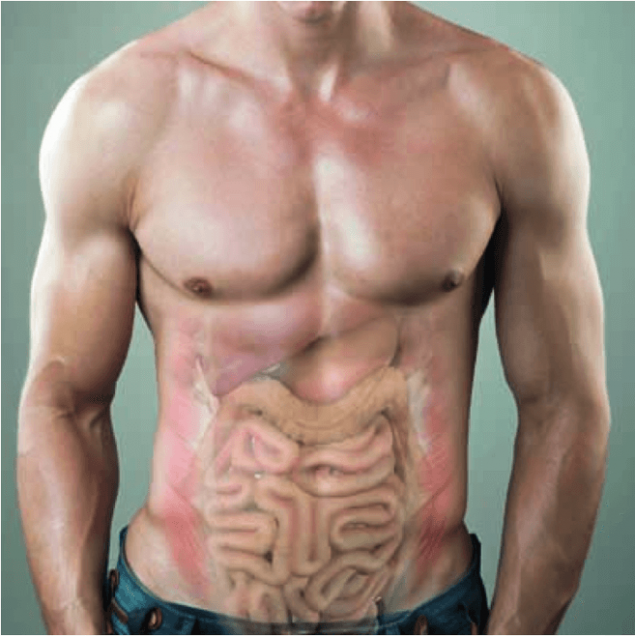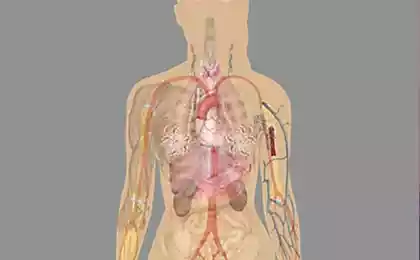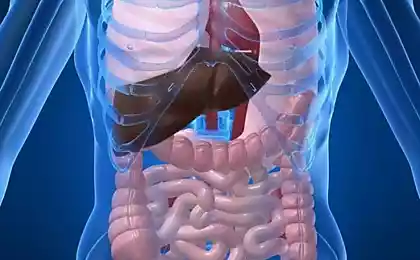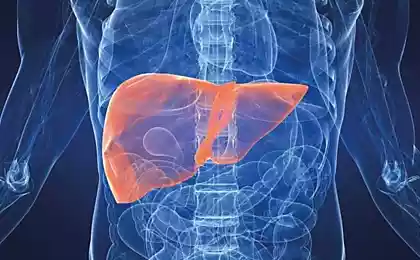420
Signs of the presence of toxins in Your body
The toxic substances cause serious disorders of vital activity of an organism, that provokes a phenomenon of intoxication. Intoxication is of two types: exogenous and endogenous. When the intoxication of the first type toxins enter the body from the external environment, and in the second variant – are formed directly in the body.
Close on the status and value the status of the toxicosis, which is caused by prolonged poisoning or toxaemia of other origins.
The causes of intoxication
Intoxication caused by environmental factors, can trigger a variety of substances. This and some of the elements (Halogens, heavy metals, beryllium, arsenic, selenium) and many classes of chemical compounds. Also cause severe intoxication poisonous plants, poisonous animals, toxins, microorganisms, and other factors.
Sometimes important causes of intoxication is not so much the substance introduced into the body, as the products of its processing. They in this case have dangerous toxic effects. Toxic substances enter the body through the upper respiratory tract, skin, digestive tract, mucous membranes or parenteral.
The formation of toxins in the body (endogenous intoxication) can be caused by various products that have a poisonous impact, which appear when tissue damage. These injuries cause serious injuries, radiation injuries, burns and inflammation that affected large areas of different etiology. Significant tissue damage lead some diseases of an infectious nature, as well as malignant neoplasms and other equally dangerous diseases.
Endogenous intoxication occurs when the body stores or produces too large number of physiologically active substances, which include hormones produced by the thyroid gland, thyrotoxicosis, or the adrenaline rush when chromaffine. Dangerous lose body toxins can result in improper operation of various excretory processes. A striking example of this intoxication can be dangerous uremic intoxication in renal failure.
To provoke the appearance of toxic substances in the body are some violations of metabolic processes. This provokes the inevitable formation of toxic metabolites, or the poor disposal of toxic substances that are constantly produced in the body. These substances include free bilirubin, ammonia, phenol, which are produced in diseases of the liver or ketone bodies in diabetes mellitus.
Products of free radical oxidation of lipids also possess toxic properties. They are produced in many pathological processes.
Symptoms of intoxicationSymptoms of intoxication are very extensive and have different expression. Their manifestations are due to the nature of the toxic substances, physical and chemical properties, affinity to certain organs, systems physiology, subcellular structures, the tissues of the body produced enzymes and available receptors. For example, allocate psychotropic and cardiotropic, hepatotropic, lipotropic, mutagenic, blood, carcinogenic, and various other ototoxic substances containing toxins.
Significant role in the flow of toxins from the external environment has a concentration of toxic substances and how it enters the body and spreads in it. Importantly, where they accumulate and how regularly enter the body – a single, again or is a continuous effect. When the intoxication has a repeated or continuous form, often formed the impression of cumulative effects or habituation. This is evident in cases of poisoning by mercury, digitalis, lead, morphine, arsenic, as well as the usual alcohol.
The consequences of intoxication are due to personal reactivity. This includes adequate functionality of the mechanisms of resistance to intoxication, in other words, the proper functioning of the immune system, internal and external barriers, excretory system, nonspecific protection of the organism, systems of endogenous chemical detoxification.
Still, depending on the degree of intoxication manifest different symptoms. Acute intoxication is characterized by relatively high body temperature, severe pain in muscles, joints and in the head. Often severe intoxication is accompanied by uncontrollable diarrhoea and vomiting. Under the influence of strong poisonous substances are frequent loss of consciousness, coma, or threat with threat of loss of life.
Subacute intoxication is accompanied by high (low grade) body temperature of approximately 38 degrees, tangible headache, joint and muscle pain, and disorder of the liver, stomach, intestines and other important organs. In this type of intoxication there is a feeling of fatigue and drowsiness.
In chronic intoxication, which occurs as a result of not cured before the end of acute intoxication and lack of self-cleansing of the body may be such symptoms: depression, irritability, nervousness, fatigue, insomnia or drowsiness, frequent headaches, changes in body weight, there are serious problems with the intestines in the form of flatulence, diarrhoea and constipation.
During intoxication suffering and human skin, an unpleasant odor, the result of skin diseases — acne, furunculosis, dermatitis. Often accompanied by a marked decrease in immunity that affects the increase in the frequency of viral diseases and allergic reactions. Sometimes there is a perversion of the immune system (autoimmune disease). Intoxication affects the appearance of the person. His dull and thinning hair, the skin loses its elasticity and healthy color.
The symptoms of intoxication very much and each person individually. As a rule, from intoxication always suffer from the weaknesses of the body.published
P. S. And remember, only by changing their consumption — together we change the world! ©
Join us in Facebook , Vkontakte, Odnoklassniki
Source: www.ayzdorov.ru/lechenie_intoksikaciya_chto.php
Close on the status and value the status of the toxicosis, which is caused by prolonged poisoning or toxaemia of other origins.
The causes of intoxication

Intoxication caused by environmental factors, can trigger a variety of substances. This and some of the elements (Halogens, heavy metals, beryllium, arsenic, selenium) and many classes of chemical compounds. Also cause severe intoxication poisonous plants, poisonous animals, toxins, microorganisms, and other factors.
Sometimes important causes of intoxication is not so much the substance introduced into the body, as the products of its processing. They in this case have dangerous toxic effects. Toxic substances enter the body through the upper respiratory tract, skin, digestive tract, mucous membranes or parenteral.
The formation of toxins in the body (endogenous intoxication) can be caused by various products that have a poisonous impact, which appear when tissue damage. These injuries cause serious injuries, radiation injuries, burns and inflammation that affected large areas of different etiology. Significant tissue damage lead some diseases of an infectious nature, as well as malignant neoplasms and other equally dangerous diseases.
Endogenous intoxication occurs when the body stores or produces too large number of physiologically active substances, which include hormones produced by the thyroid gland, thyrotoxicosis, or the adrenaline rush when chromaffine. Dangerous lose body toxins can result in improper operation of various excretory processes. A striking example of this intoxication can be dangerous uremic intoxication in renal failure.
To provoke the appearance of toxic substances in the body are some violations of metabolic processes. This provokes the inevitable formation of toxic metabolites, or the poor disposal of toxic substances that are constantly produced in the body. These substances include free bilirubin, ammonia, phenol, which are produced in diseases of the liver or ketone bodies in diabetes mellitus.
Products of free radical oxidation of lipids also possess toxic properties. They are produced in many pathological processes.
Symptoms of intoxicationSymptoms of intoxication are very extensive and have different expression. Their manifestations are due to the nature of the toxic substances, physical and chemical properties, affinity to certain organs, systems physiology, subcellular structures, the tissues of the body produced enzymes and available receptors. For example, allocate psychotropic and cardiotropic, hepatotropic, lipotropic, mutagenic, blood, carcinogenic, and various other ototoxic substances containing toxins.
Significant role in the flow of toxins from the external environment has a concentration of toxic substances and how it enters the body and spreads in it. Importantly, where they accumulate and how regularly enter the body – a single, again or is a continuous effect. When the intoxication has a repeated or continuous form, often formed the impression of cumulative effects or habituation. This is evident in cases of poisoning by mercury, digitalis, lead, morphine, arsenic, as well as the usual alcohol.
The consequences of intoxication are due to personal reactivity. This includes adequate functionality of the mechanisms of resistance to intoxication, in other words, the proper functioning of the immune system, internal and external barriers, excretory system, nonspecific protection of the organism, systems of endogenous chemical detoxification.
Still, depending on the degree of intoxication manifest different symptoms. Acute intoxication is characterized by relatively high body temperature, severe pain in muscles, joints and in the head. Often severe intoxication is accompanied by uncontrollable diarrhoea and vomiting. Under the influence of strong poisonous substances are frequent loss of consciousness, coma, or threat with threat of loss of life.
Subacute intoxication is accompanied by high (low grade) body temperature of approximately 38 degrees, tangible headache, joint and muscle pain, and disorder of the liver, stomach, intestines and other important organs. In this type of intoxication there is a feeling of fatigue and drowsiness.
In chronic intoxication, which occurs as a result of not cured before the end of acute intoxication and lack of self-cleansing of the body may be such symptoms: depression, irritability, nervousness, fatigue, insomnia or drowsiness, frequent headaches, changes in body weight, there are serious problems with the intestines in the form of flatulence, diarrhoea and constipation.
During intoxication suffering and human skin, an unpleasant odor, the result of skin diseases — acne, furunculosis, dermatitis. Often accompanied by a marked decrease in immunity that affects the increase in the frequency of viral diseases and allergic reactions. Sometimes there is a perversion of the immune system (autoimmune disease). Intoxication affects the appearance of the person. His dull and thinning hair, the skin loses its elasticity and healthy color.
The symptoms of intoxication very much and each person individually. As a rule, from intoxication always suffer from the weaknesses of the body.published
P. S. And remember, only by changing their consumption — together we change the world! ©
Join us in Facebook , Vkontakte, Odnoklassniki
Source: www.ayzdorov.ru/lechenie_intoksikaciya_chto.php























